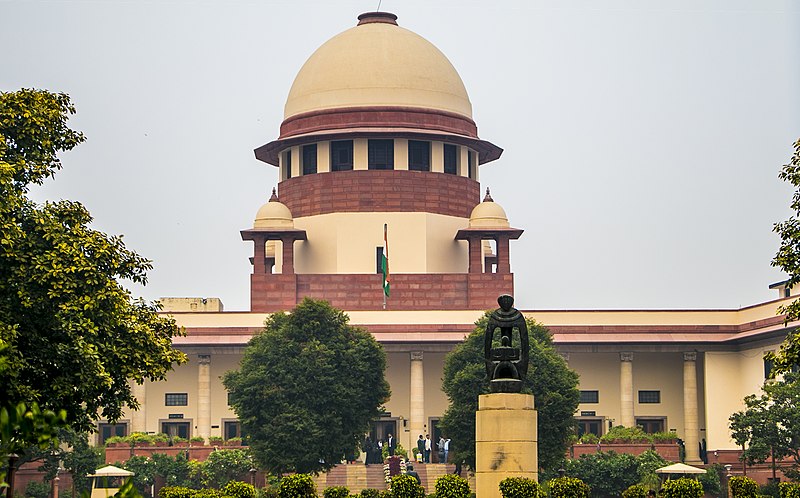Affirms the judgment and decree of specific performance (Para 1)
A. Valliammai had entered into an agreement to sell dated 26.05.1988, Exhibit A-1, with respondent no. 3 – K. Sriram, for the sale of the Suit Property at the rate of Rs. 2,95,000/- per acre. An amount of Rs. 1,00,000/- was paid by K. Sriram to A. Valliammai as an advance. The balance sale consideration of Rs. 31,45,000/- was required to be paid within one year from 26.05.1988, that is, by 26.05.1989. However, vide endorsement dated 26.05.1989, Exhibit A-3, the timeline for payment of the balance sale consideration and execution of the sale deed was extended by 6 months, that is, till 26.11.1989. (Para 3)
On 11.07.1991, K. Sriram had issued a legal notice through his advocate, Exhibit A-6, requiring A. Valliammai to accept the balance sale consideration and execute the sale deed within one month. A. Valliammai had agreed to execute the sale deed within one year from the date of the agreement by executing single or multiple deeds in favour of K. Sriram or third persons, as suggested by him. On 14.04.1991, A. Valliammai had demanded Rs. 3,00,000/- as a part of the sale consideration, but on 07.07.1991, she had refused to accept the Rs. 3,00,000/- offered by K. Sriram. Further, A. Valliammai had expressed her willingness to sell only half of the Suit Property and that too at an enhanced consideration of Rs. 4,17,000/- per acre. A. (Para 5)
In any event, exchange of property requires a registered document. A partition deed cannot be corrected in the survey proceedings. (Para 8)
K.P. Murali and S.P. Duraisamy, filed a suit for permanent injunction in O.S. No. 1651 of 1994 with a prayer to restrain A. Valliammai from dealing with the Suit Property. Decree for specific performance of the agreement to sale (Exhibit A-1) was not prayed. It appears that an interim injunction was not granted. (Para 13)
On 02.05.1995, A. Valliammai sold 5 acres, a portion of the Suit Property, for a sale consideration of Rs.7,50,000/- to B. Namichand Jain and three others. The purchasers were put in possession and enjoyment of such portions of the Suit Property. (Para 14)
For the aforesaid reasons, the 3-year limitation period to file a suit for specific performance commenced as early as when the K. Sriram had filed suit for injunction on 15.07.1991. (Para 27)
The limitation period of three years under the second part of Article 54, which is from the date when the party had notice of the refusal by the other side, had expired when the suit for specific performance was filed on 27.09.1995. Suit in O.S. No. 21 of 2004 is barred by limitation. (Para 27)
Accordingly, the impugned judgment and decree for specific performance, as affirmed by the Division Bench, is set aside. (Para 28)
We exercise our power under Article 142 of the Constitution of India, to do substantial justice with the direction to A. Valliammai to pay Rs.50,00,000/- (Rupees Fifty Lakhs Only) to K.P. Murali and S.P. Duraisamy. The figure keeps in mind the advance of Rs.1,00,000/- paid on 26.05.1988 and the expenses incurred by K. Sriram, and interest etc. A decree of Rs.50,00,000/- is passed in favour of K.P. Murai and S.P. Duraisamy against A. Valliammai in the above terms. It is also directed that in case Rs.50,00,000/- is not paid by A. Valliammai within 6 (six) months, she shall be liable to pay interest @ 8% per annum on Rs. 50,00,000/- from the date of this judgment till the date on which the payment is actually made. (Para 29)
SUPREME COURT OF INDIA
2023 STPL(Web) 263 SC
[2023 INSC 823]
Valliammai Vs. K.P. Murali And Others
Civil Appeal No. 5342 of 2023 With Civil Appeal No. 5343 of 2023 Civil Appeal No. 5344 of 2023 And Civil Appeal No. 5345 of 2023-Decided on 12-9-2023
https://stpllaw.in/wp-content/uploads/2023/09/2023-STPLWeb-263-SC.pdf







